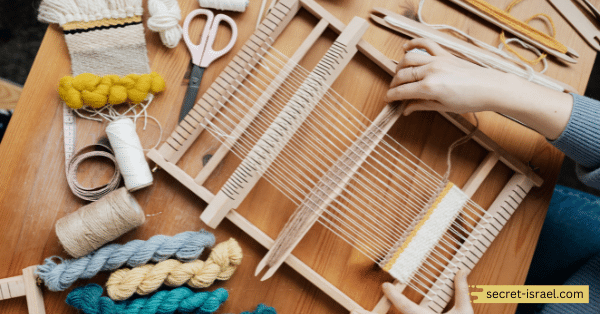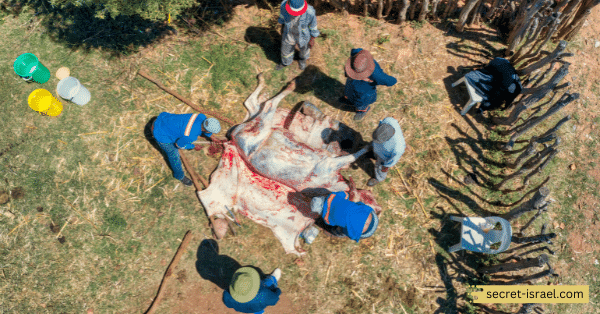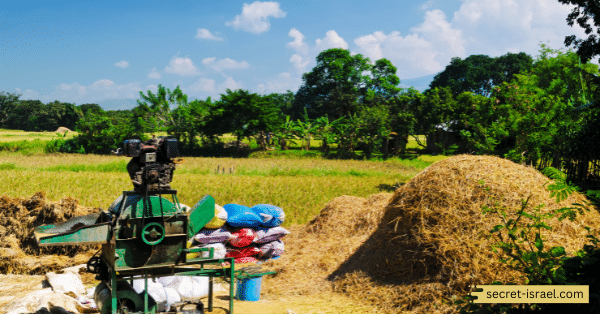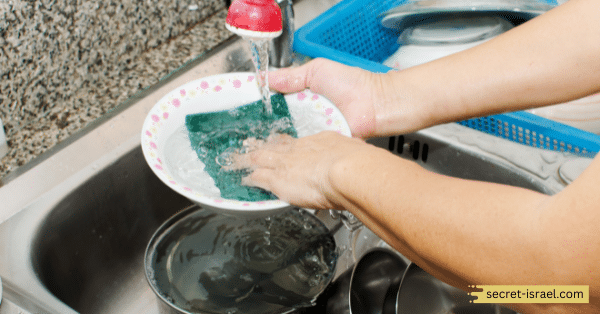Discover the 15 activities strictly prohibited on Shabbat in Israel, the Jewish day of rest. From burning and cooking to weaving and harvesting, these restrictions are meant to uphold the principles of rest and reflection. Respect for these customs is essential when visiting Israel and engaging with its rich cultural heritage.
This blog post will provide an understanding of Shabbat and the rules around it. We’ll also look at how modern technology has allowed for new ways to celebrate the Sabbath without breaking any religious restrictions. So, let’s begin by looking at the 10 activities prohibited on Shabbat in Israel.
1. Burning
It is important to note that burning is one of the activities strictly prohibited on Shabbat in Israel. Although burning may seem harmless, it is considered a form of labor that goes against the principles of rest and reflection that Shabbat represents.
This includes burning candles, incense, and any other materials. While exceptions may be made in the case of emergency situations, it is generally respected that Shabbat is a day of rest and respite, free from the distractions and labor of daily life.

2. Cooking
This is because cooking involves the use of fire, which is considered a form of “creation” and is therefore prohibited on Shabbat. To adhere to this rule, many Jews in Israel prepare all of their meals in advance, either on Friday or throughout the week.
This allows them to enjoy a day of rest without breaking any religious laws. Despite the restrictions, Shabbat in Israel is a time of immense joy and celebration, with families coming together to share meals and spend time with one another.

3. Planting
This means that if you were planning to start a garden or plant some new trees on Shabbat, you’ll have to wait until the following day. These rules are in place to honor the tradition of Shabbat and ensure that people are able to rest and spend time with their families in peace. While it may be frustrating to some, it’s important to understand and respect these customs when visiting Israel.

4. Harvesting
This is because it involves separating fruits and vegetables from their natural environment, which goes against the concept of resting and refraining from work on the Sabbath.
While harvesting is an essential part of farming, it is important to respect the cultural and religious traditions of the country and refrain from this activity on Shabbat.

5. Weaving
This traditional practice of creating fabric by intertwining threads is considered a form of labor that is not allowed on a holy day. Instead, the focus should be on rest and reflection.
Weaving has a rich history in Jewish culture and tradition, but on Shabbat, it’s important to adhere to the laws and honor the sacredness of the day.

6. Building
This is because building involves doing work and it is believed that no work should be undertaken on Shabbat. While this may be an inconvenience for some, it is an important aspect of religious observance for many and should be respected.
It is essential to be aware of the cultural and religious customs of the places we visit and to respect them to ensure a peaceful and enjoyable experience for all.

7. Slaughtering
Among the activities strictly prohibited is slaughtering, which is the act of killing animals for food. This ban on slaughtering ensures that Jews do not engage in any commercial or agricultural activities on Shabbat, as it is meant to be a day of spiritual reflection and rest.
The importance of observing these rules is deeply ingrained in the Jewish culture and traditions, making them an integral part of daily life in Israel.

8. Threshing
Threshing, which involves separating grains from their stalks, is included in the list of prohibited activities. This is due to the fact that it was traditionally done using animals or machinery, which would violate the prohibition of working on Shabbat.
Nowadays, modern technologies and mechanization make it difficult to completely avoid threshing in all forms, but efforts are made to minimize the impact on Shabbat observance.

9. Sewing
This means that on Saturdays, Jewish individuals in Israel are not allowed to sew any clothing or other items. While this might seem like a minor restriction, it is a testament to the importance of resting and focusing on spiritual matters during Shabbat.
By abstaining from sewing and other activities, individuals are able to fully immerse themselves in the day’s meaning and significance.

10. Washing
This includes any kind of washing, whether it be laundry or personal hygiene. The prohibition stems from the idea that it is a form of labor, and Shabbat is meant to be a day of rest and reflection. Despite the inconvenience, many Israelis observe these rules out of respect for tradition and their religious beliefs.

11. Knotting
Among these is knotting, which includes tying or untying knots. This is because knotting was traditionally seen as a form of creative labor, which is not permitted on Shabbat. These restrictions are observed by many Jews in Israel as a way to honor the Sabbath and maintain a connection to their faith. Respect for these traditions is an important aspect of Israeli culture.

12. Reaping
It is considered a major violation of Jewish law to gather any produce from vegetation or fields on Shabbat. This means that farmers and agricultural workers must plan their schedules accordingly and avoid any harvesting activities on this day.
While Shabbat is a time of spiritual renewal and connection, it is important to understand and follow the guidelines set forth by Jewish tradition.

13. Sifting
Which refers to the act of separating impurities from grains or other substances. This is because sifting was traditionally used for preparing materials for construction or manufacturing, which is considered a form of prohibited labor on the Sabbath.
While some leniencies may be made for sifting that is done for food preparation purposes, it is generally not allowed on Shabbat in Israel. It is important for visitors and residents alike to be aware of these restrictions so as to honor the Sabbath traditions and customs.

14. Combing
These include any form of work, such as plowing, sowing, reaping, and harvesting. Also, commerce such as buying and selling is forbidden. Furthermore, lighting a fire and cooking are not permitted. Combining one or more twisted fibers is similarly prohibited.
This includes combing hair, which Orthodox Jews refrain from doing on the Sabbath. The rules of Shabbat are taken very seriously in Israel, and many religious Jews abide by them strictly.

15. Demolishing
Demolishing is one of the activities that fall under this category and is therefore not allowed on this specific day of the week. This is in line with the Jewish tradition that upholds the principle of resting on Shabbat.
While some exceptions may be made in cases of danger or to save lives, the prohibition against demolishing remains in effect. It is important for residents and visitors alike to be aware of these rules and abide by them as a sign of respect for Jewish culture and tradition.

In conclusion
Shabbat is a significant day in the Jewish religion, and there are 15 activities strictly prohibited during this time. These prohibitions are to honor the tradition of rest and respect for God’s creation.
It is essential to take note of these restrictions when visiting Israel during Shabbat, as it is a significant event in the Jewish community. Understanding these limitations will help visitors appreciate and respect the cultural and religious practices of Israel and its people.











